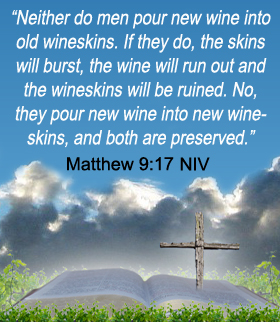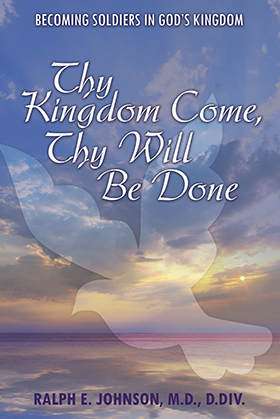The Hebrews were to ask neighbors for gold and silver, and in doing so the favor of God resulted in a great bounty. God then said He would go through the land of Egypt and kill the firstborn of each Egyptian family, beast and human alike, while the Hebrews would be spared providing they obeyed certain instructions. As a consequence, God said that the Pharaoh would release the Hebrews, foretelling people being released from their bondage to sin and Satan by Calvary 1500 years later (Colossians 1:13). The NT specifically says the events of this Passover would foretell the atoning sacrifice of Christ.
“Christ our Passover is sacrificed for us.” 1 Corinthians 5:7
God’s instructions to Moses marked the first month of the first year for Israel (Exodus 12:2). On the tenth day, a year old lamb free of blemish symbolic of Jesus’ sinlessness was to be chosen for each family. On the evening of the fourteenth day, the lamb was to be killed and its blood placed on the sides and top of the door to each house. The lamb was to be roasted and eaten together with unleavened bread and bitter herbs by people dressed and ready to leave on short notice. No one was to go out of their house during the night as the angel of death would pass over homes with blood on the door frames and only those inside would be protected. It was a clear foreshadowing of the new covenant wherein those remaining under the covering of Jesus’ shed blood in obedient faith and standing firm will be spared the wrath of God at judgment.
On the day of the Passover meal, and for the next seven days, people were to remove all yeast which is symbolic of sin and eat only unleavened (without yeast) bread. Passover and the Feast of Unleavened Bread were thereafter to be celebrated every year in remembrance of deliverance from Egypt (Exodus 12:17). Likewise the Lord’s Supper is a remembrance of Jesus’ sacrifice at Calvary by which believers reaffirm the lordship of Christ and commit themselves to resisting sin and following the commandments of God. Any Israelite eating leavened bread or failing to remove all yeast from their home was to be cut off from Israel (Exodus 12:15), forewarning taking the Lord’s Supper in an unworthy manner.
“Let a man examine himself….for he that eats and drinks unworthily, eats and drinks damnation to himself….for this cause many are weak and sickly among you and many sleep [died].” 1 Corinthians 11:28-30
The penalty was severe for failing to not rid leaven from their lives, symbolic of removing what was not acceptable to God by being obedient to His commands. They were no longer fitto be included within the body of God’s chosen people of Israel. In the same manner, Paul warns that failure to submit to God in the sense of cooperating with the help of Holy Spirit in putting to death misdeeds of the body will risk spiritual death (Romans 8:13). It is those who sincerely pursue sanctification and are not defiling the Lord’s broken body and shed blood represented by the Lord’s Supper who will be blessed. To risk not only sickness but death by not examining oneself before partaking in the Lord’s Supper is foolhardy! Yet in spite of such warnings, churches are full of those failing to put off what is carnal to live in holiness and godliness. They proceed to drink damnation to themselves by taking part in the Lord’s Supper, usually not being urgently warned by leaders who fear to offend.
Paul tells us that believers in Christ must rid themselves of all yeast representing carnal ways: “Having therefore these promises, dearly beloved, let us cleanse ourselves from all filthiness of the flesh and spirit, perfecting holiness in the fear of God” (2 Corinthians 7:1). Here is perfect harmony of the Passover and Feast of Unleavened Bread with the teachings of Christ and the apostles. Many fail to recognize this harmony, not realizing the Israelites were redeemed as they left Egypt in the sense those believing in Christ are redeemed. Peter reminds believers of their being justified “with the precious blood of Christ, as of a lamb without blemish and without spot” which was foretold at the Passover (1 Peter 2:19). And after passing through waters of the Red Sea, Moses sang to the LORD, “You in Your mercy have led forth the people which You have redeemed“ (Psalm 15:13). Just as sprinkling blood of the lamb on the doorposts in Egypt was carried out in obedient faith, redemption through Jesus is only obtained by “obedience that comes from faith” (Romans 1:5).
“Not every one that says to Me, Lord, Lord, shall come into the kingdom of heaven, but he that does the will of My Father which is in heaven.” Matthew 7:21
Eating of the sacrificial lamb identified with the Passover lamb ‘s death just as taking the Lord’s Supper represents participation in Jesus’ death. The Passover meal also brought healing just as by the stripes suffered by Christ there is healing (1 Peter 2:24): “There was not one feeble person among their tribes” after the Hebrews left Egypt and passed through the waters of the Red Sea (Psalm 105:37). Bitter herbs at the Passover meal remind one of the bitterness from which the people were delivered, and being fully dressed signified their readiness to leave Egypt in haste when the opportunity arose. It is a foreshadowing of the unsaved sinner’s need to repent without delay when convicted of sin and brought to godly sorrow by the work of Holy Spirit so as to receive faith to believe on Jesus unto salvation.


